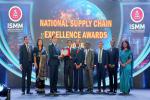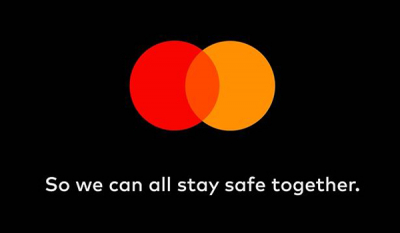As nations implement stricter containment measures to keep their citizens protected, Mastercard has taken a leadership role by actively consulting with governments and industry partners across the Asia Pacific region to ensure consumers have sufficiently high limits for contactless payments.
Having the right transaction limit helps people stock up on more essential items on each trip to public places without having to touch potentially infectious surfaces, key in a PIN, handle cash or use a pen to process their payments.
It is also important for merchants and consumers to know that signatures are no longer required for card payments, which further reduces contact points and speeds up purchases.
Consumers simply need to look for the contactless symbol on the front or back of their cards to see if they can tap when they are checking out with their purchases.
For mobile devices, any change in limits has no impact on transactions or personal safety as a fingerprint, facial scan or PIN keyed into the device itself is still required and contact points are confined to the cardholder’s device.
“Face-to-face transactions still need to happen, even in times as unusual as now.
Making them as fast and contactless as possible is one way to help people to be more socially responsible, support local businesses and protect everyone in the community when they need it the most,” said Sandeep Malhotra, Executive Vice President, Products & Innovation, Asia Pacific, Mastercard.
“Mastercard fully supports social distancing, remote working, stay-at-home measures and other efforts to contain COVID-19 and is actively working with partners and customers in every market to bring the industry together and find mutual ways to help, be it through contributing insights and consultative advice or driving more consumer education and awareness building.”
As of February 2020, contactless payments made up approximately 50 percent of Mastercard’s global card-present purchases, excluding the United States.
Asia Pacific is seeing an overall rapid expansion in contactless payments but adoption varies across the region – from widespread use in Australia, Singapore, Hong Kong, New Zealand and Malaysia to swift uptake in India and steady growth from a low base in China, Japan, Indonesia and Vietnam.
Transaction limits also vary across the region as each market has the autonomy to set its own limits based on what is right for the domestic environment and for cardholders.
Some markets including Singapore, Malaysia, Hong Kong, Taiwan and Japan already have sufficiently high limits.
Australia and New Zealand have raised their limits, effective April 9, and the Philippines will increase its limit on July 17.
Still other markets are at a more exploratory stage in their deliberations and Mastercard stands ready to support them as initial discussions build momentum for action.
The momentum across Asia Pacific reflects efforts globally to expand the use of contactless payments.
In Europe, Mastercard continues to advocate for consumers and merchants alongside industry partners as 29 countries recently raised contactless limits, either permanently or temporarily. In Canada, Mastercard enabled a higher limit in early April.
Limits are being raised in Kenya, Tanzania, Uganda and Mauritius as Mastercard champions efforts for increases across the Middle East and Africa and works with industry partners in Latin America and the Caribbean to enable increases.
Extensive Support Around The World
Beyond ongoing efforts related to ensuring the safety and security of payments, Mastercard is also taking many other steps to support customers, merchants and consumers during this time of need.
To help communities at the local level, Mastercard is working with customers to bring smaller shops online and increase digital payments acceptance to support their businesses.
Mastercard’s Center for Inclusive Growth is tapping into its network of thought leaders to assess the impact on some of the most affected groups, including small businesses, low-skilled workers and financially vulnerable households.
To speed the development and scaling of treatments for COVID-19, a partnership by the Bill and Melinda Gates Foundation, Wellcome Trust and Mastercard has committed up to $125 million in funding.
Employees have also donated time, money and medical supplies to communities around the world as part of Mastercard’s commitment to doing well by doing good.
About Mastercard (NYSE: MA), www.mastercard.com
Mastercard is a global technology company in the payments industry.
Our mission is to connect and power an inclusive, digital economy that benefits everyone, everywhere by making transactions safe, simple, smart and accessible.
Using secure data and networks, partnerships and passion, our innovations and solutions help individuals, financial institutions, governments and businesses realize their greatest potential.
Our decency quotient, or DQ, drives our culture and everything we do inside and outside of our company.
With connections across more than 210 countries and territories, we are building a sustainable world that unlocks priceless possibilities for all.






















